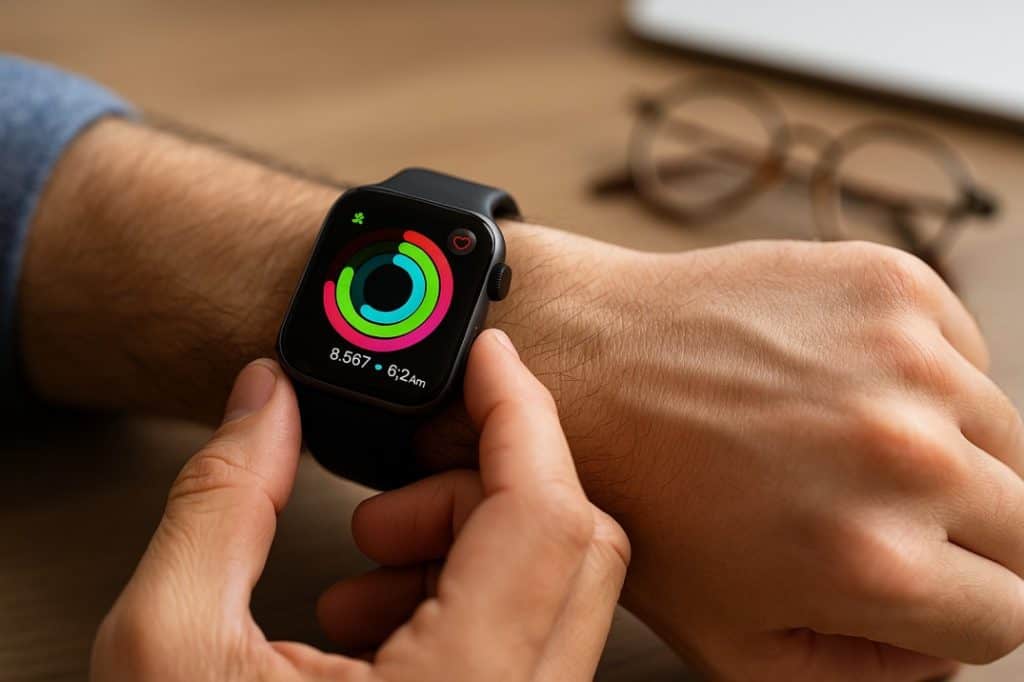Wearable tech like fitness trackers and smartwatches is starting to influence how insurance premiums are calculated in Australia. At Midland Insurance, we’ve seen growing interest in whether devices that monitor health and activity can lead to lower premiums, especially for personal accident, sickness, and life insurance. While some insurers reward healthy habits, privacy and data accuracy remain key concerns. Sharing wearable data can potentially reduce costs, but it must be balanced with transparent privacy protections. As wearable tech becomes more common, it may play a bigger role across multiple types of insurance coverage.
Ever thought your fitness tracker could lower your insurance bill?
At Midland Insurance, we've had countless discussions with our clients about how technology shapes their lives. Wearable tech, like Fitbits or Apple Watches, has caught our attention lately. Could they actually lower your insurance premiums? Our team has explored this, and the results might surprise you.
Wearables are Changing Insurance
Wearable tech gives insurers a better picture of your health. This isn't science fiction. Insurers worldwide are increasingly turning to data from devices to determine premiums. One ABC News report highlighted how some Australian insurers have already started using fitness trackers to set premiums (here's the full story).
At Midland, we’ve seen this shift too. Our customers regularly ask whether their fitness routines could earn them lower premiums, especially with personal accident and sickness insurance or life insurance. And yes, some providers reward healthier habits.
How Exactly Do Wearables Lower Costs?
Insurance is all about risk. The healthier you are, the lower your risk profile. Wearable devices track daily activity, heart rate, sleep patterns, and even stress levels. Insurance companies see this data as proof that you're actively maintaining your health.
Some clients have told us they love the idea of being rewarded for healthy habits. It makes insurance feel more like a partnership than a penalty. Imagine hitting your daily step goal and seeing that reflected in your premiums - that’s where things might be headed.
But there's a catch. They also pointed out privacy issues that could arise from sharing your data. Privacy is a huge factor, and we've found our clients at Midland Insurance share similar concerns.
Privacy Matters – A Lot
Let's face it: sharing personal health data can feel intrusive. Many Australians worry about their sensitive information ending up in the wrong hands. Helen emphasised that insurers need transparent data policies to make people comfortable sharing their health metrics.
As part of our personal cyber insurance offerings, we regularly discuss privacy protection with our customers. Ensuring your data remains private is something we strongly advocate for at Midland.
Did You Know
Wearable technology usage in Australia is predicted to rise significantly by 2025, meaning this trend isn’t disappearing anytime soon (source)
Accuracy of Wearables – Can They be Trusted?
A common question we get is whether fitness trackers are accurate enough for insurers to rely on. It's an important concern. A detailed study published by BioMed Central highlights wearable tech's increasing accuracy, making them credible tools for insurers (here's that study).
Still, wearable tech isn't flawless. Devices can misread steps or heart rates. This isn't ideal for setting premiums. So, insurers typically look at trends over weeks or months rather than day-to-day fluctuations. Midland clients who’ve embraced wearables tell us this approach feels fairer and less invasive.
Could Wearables Influence Other Insurance Covers?
Wearable tech could also impact areas beyond health insurance. Think workplace safety or even vehicle insurance, where fatigue and stress monitoring could help prevent accidents. Our conversations at Midland have already started exploring these possibilities.
If you run a business, wearables could even help manage employee wellness and potentially reduce claims under business interruption insurance or other business-related covers.
What Does This Mean for Australians?
Australian insurers are still testing the waters. Some have embraced wearables, others remain cautious. At Midland Insurance, we've noticed that more insurers are beginning to recognise the potential in wearable tech.
It might not be mainstream yet, but wearable tech's role in insurance is growing. And it could soon become common practice to share your health data for discounts.
Getting Started – What Should You Do?
If you're interested in how wearable tech could influence your insurance, start by checking out your current policies. Feel free to contact us to discuss how wearables could specifically benefit your premiums. We can explore this together.
Ultimately, wearable tech is reshaping insurance, providing exciting opportunities to save. Just remember to consider privacy and accuracy alongside potential discounts.
Wearable tech like fitness trackers and smartwatches is starting to influence how insurance premiums are calculated in Australia. At Midland Insurance, we’ve seen growing interest in whether devices that monitor health and activity can lead to lower premiums, especially for personal accident, sickness, and life insurance. While some insurers reward healthy habits, privacy and data accuracy remain key concerns. Sharing wearable data can potentially reduce costs, but it must be balanced with transparent privacy protections. As wearable tech becomes more common, it may play a bigger role across multiple types of insurance coverage.
Ever thought your fitness tracker could lower your insurance bill?
At Midland Insurance, we've had countless discussions with our clients about how technology shapes their lives. Wearable tech, like Fitbits or Apple Watches, has caught our attention lately. Could they actually lower your insurance premiums? Our team has explored this, and the results might surprise you.
Wearables are Changing Insurance
Wearable tech gives insurers a better picture of your health. This isn't science fiction. Insurers worldwide are increasingly turning to data from devices to determine premiums. One ABC News report highlighted how some Australian insurers have already started using fitness trackers to set premiums (here's the full story).
At Midland, we’ve seen this shift too. Our customers regularly ask whether their fitness routines could earn them lower premiums, especially with personal accident and sickness insurance or life insurance. And yes, some providers reward healthier habits.
How Exactly Do Wearables Lower Costs?
Insurance is all about risk. The healthier you are, the lower your risk profile. Wearable devices track daily activity, heart rate, sleep patterns, and even stress levels. Insurance companies see this data as proof that you're actively maintaining your health.
Some clients have told us they love the idea of being rewarded for healthy habits. It makes insurance feel more like a partnership than a penalty. Imagine hitting your daily step goal and seeing that reflected in your premiums - that’s where things might be headed.
But there's a catch. They also pointed out privacy issues that could arise from sharing your data. Privacy is a huge factor, and we've found our clients at Midland Insurance share similar concerns.
Privacy Matters – A Lot
Let's face it: sharing personal health data can feel intrusive. Many Australians worry about their sensitive information ending up in the wrong hands. Helen emphasised that insurers need transparent data policies to make people comfortable sharing their health metrics.
As part of our personal cyber insurance offerings, we regularly discuss privacy protection with our customers. Ensuring your data remains private is something we strongly advocate for at Midland.
Did You Know
Wearable technology usage in Australia is predicted to rise significantly by 2025, meaning this trend isn’t disappearing anytime soon (source)
Accuracy of Wearables – Can They be Trusted?
A common question we get is whether fitness trackers are accurate enough for insurers to rely on. It's an important concern. A detailed study published by BioMed Central highlights wearable tech's increasing accuracy, making them credible tools for insurers (here's that study).
Still, wearable tech isn't flawless. Devices can misread steps or heart rates. This isn't ideal for setting premiums. So, insurers typically look at trends over weeks or months rather than day-to-day fluctuations. Midland clients who’ve embraced wearables tell us this approach feels fairer and less invasive.
Could Wearables Influence Other Insurance Covers?
Wearable tech could also impact areas beyond health insurance. Think workplace safety or even vehicle insurance, where fatigue and stress monitoring could help prevent accidents. Our conversations at Midland have already started exploring these possibilities.
If you run a business, wearables could even help manage employee wellness and potentially reduce claims under business interruption insurance or other business-related covers.
What Does This Mean for Australians?
Australian insurers are still testing the waters. Some have embraced wearables, others remain cautious. At Midland Insurance, we've noticed that more insurers are beginning to recognise the potential in wearable tech.
It might not be mainstream yet, but wearable tech's role in insurance is growing. And it could soon become common practice to share your health data for discounts.
Getting Started – What Should You Do?
If you're interested in how wearable tech could influence your insurance, start by checking out your current policies. Feel free to contact us to discuss how wearables could specifically benefit your premiums. We can explore this together.
Ultimately, wearable tech is reshaping insurance, providing exciting opportunities to save. Just remember to consider privacy and accuracy alongside potential discounts.












